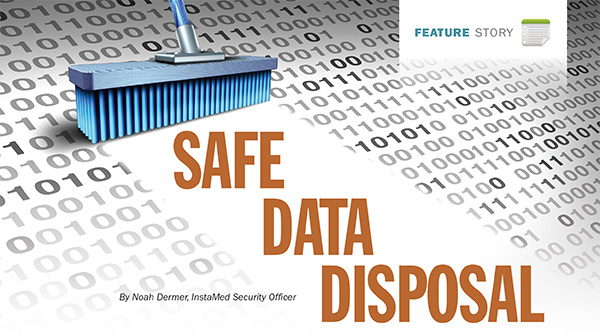By Noah Dermer, InstaMed Security Officer
from the May/June 2017 issue of HBMA Billing
Improper Data Disposal Can Open You Up to HIPAA Violations. Stay in Compliance With These Spring Cleaning Tips.
This time of year always marks the start of spring cleaning in my household. I love spring cleaning for many reasons. Not only does it give me the chance to make new space in the garage, get the backyard ready for summer barbecues, and rediscover all the books and knickknacks that had been hiding beneath my couch cushions all year—it also gives a security guru like myself the opportunity to talk to healthcare organizations’ billing services about the importance of proper cleaning and disposing of data.
If spring cleaning is an annual tradition for you, too, you probably already know how important it is to properly dispose of any used and unwanted items. You probably also know that proper disposal procedures are more obvious for some items than others. For example, it’s easy to get rid of recyclables. You organize recyclable materials into the bins given to you by your city or town, set them on your curb on trash night, and let the sanitation department take care of the rest. However, the disposal of something like motor oil may be less obvious. You know you shouldn’t set motor oil out on the curb, but rather contact the city for how to safely dispose of it.
We are motivated to properly dispose of certain items because we want to do our part to protect the environment and don’t want to risk doing harm to ourselves and others. What we don’t always realize is that similar motivations should influence how we dispose of data.
Think about all the data that might be stored on some of your old electronic devices. For example, your smart phone—a device that many of us use to store almost all of our personal information—may still have personal data left on its internal memory even after you remove the SIM and SD cards. As technology advances and more of our devices are becoming “smart,” it is critical to properly dispose of all electronic devices, from your old computer (where you paid all of your bills) to your SmartTV (where you accessed your Netflix, Hulu, and Amazon accounts).
More at : Link






















